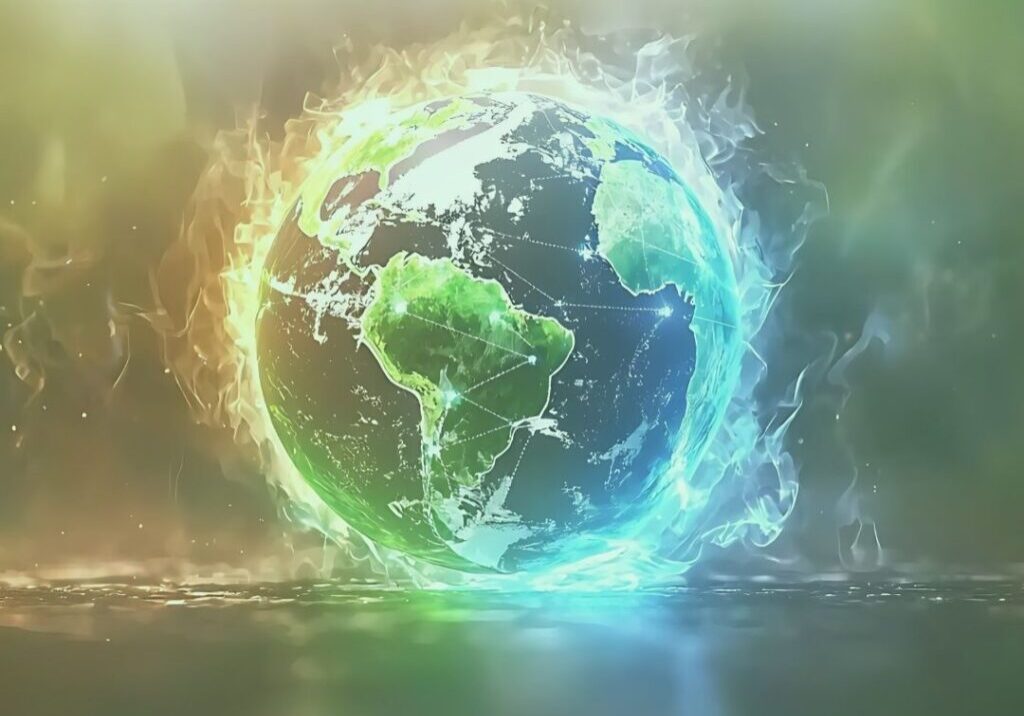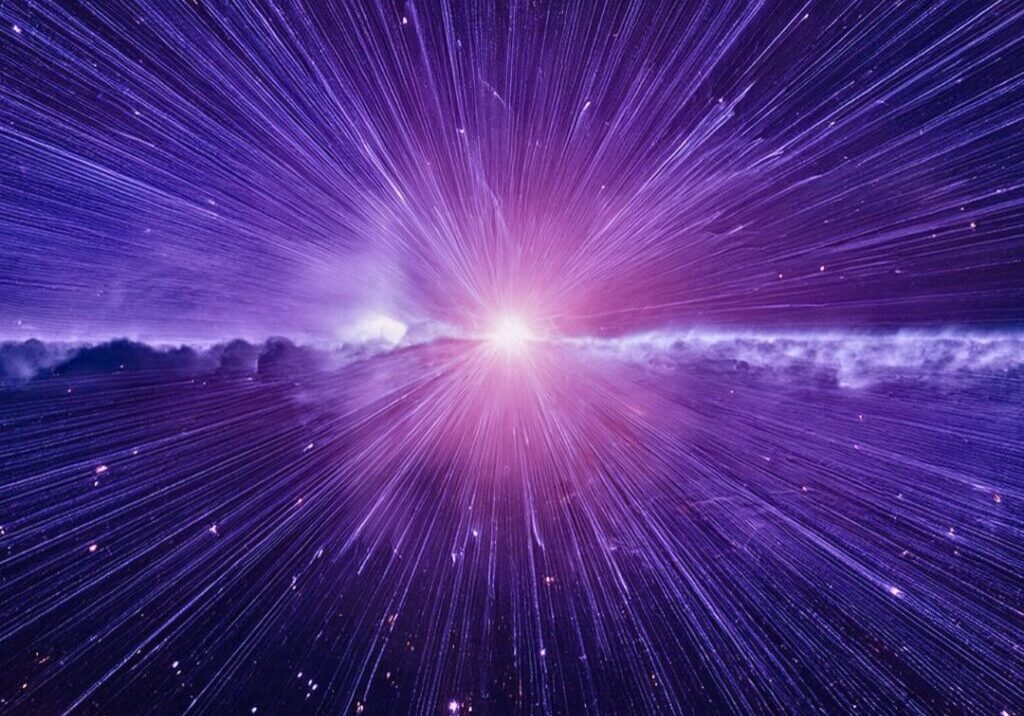Lent: Poised for Action
 Today we begin the season of Lent which has, traditionally, been a time of personal fasting, prayer and conversion. While these three activities are good, they also reinforce the old religious paradigm of individual salvation. The “I” must be purified so that one may return to God. As I reflect on our current events, the paradigm of the individual is giving way to a new paradigm of the collective self. What is the collective self? It is the self beyond the self, the hyperpersonal self for whom identity is replaced by intensity, that is, relationships which intensify being in love. The hyperpersonal self is the posthuman intensity of networked relationships, in which to be is to be with, to think with, to love with, to be free with; not the self that looks inward but the self’s inwardness that is outward, expressed in consciousness extending itself into other fields of shared life. The life of Jesus of Nazareth was a hyperpersonal self, a self in, with and for others, a self that was rooted in the immanent presence of God. There is a new expression of this selfless self that is being born anew in our midst, for whom gender intensity, racial and global justice intensity, earth intensity are being kindled by our networked world. The seeds of these ideas are in my book Re-Enchanting the Earth: Why AI Needs Religion. How does the hyperpersonal self relate to Lent? It invites us into a new way of thinking about Lent in a chaotic, evolutionary world.
Today we begin the season of Lent which has, traditionally, been a time of personal fasting, prayer and conversion. While these three activities are good, they also reinforce the old religious paradigm of individual salvation. The “I” must be purified so that one may return to God. As I reflect on our current events, the paradigm of the individual is giving way to a new paradigm of the collective self. What is the collective self? It is the self beyond the self, the hyperpersonal self for whom identity is replaced by intensity, that is, relationships which intensify being in love. The hyperpersonal self is the posthuman intensity of networked relationships, in which to be is to be with, to think with, to love with, to be free with; not the self that looks inward but the self’s inwardness that is outward, expressed in consciousness extending itself into other fields of shared life. The life of Jesus of Nazareth was a hyperpersonal self, a self in, with and for others, a self that was rooted in the immanent presence of God. There is a new expression of this selfless self that is being born anew in our midst, for whom gender intensity, racial and global justice intensity, earth intensity are being kindled by our networked world. The seeds of these ideas are in my book Re-Enchanting the Earth: Why AI Needs Religion. How does the hyperpersonal self relate to Lent? It invites us into a new way of thinking about Lent in a chaotic, evolutionary world.
The Gospel message has never been more urgent than it is today. We are invited to stand up, open our eyes, and get the splinters out of them. We are asked to clean out our hearts which has stored so much debris from the past and wake up. Something new is breaking into our teeter-tottering world-at-war, and those who see the new will live anew. The message of Jesus is a revolution of the heart but also an evolution of life. The God-centered person acts from a new center of intensified being, a radical center of love that is unencumbered, free, daring, adventurous, boundary-crossing, hybrid and future-oriented. Christian life is meant to be creative, novel and future-oriented, but the packaging of this life into rigid dogmatic formulas has all but killed the spirit of terrestrial life, keeping God unrelated and unaffected by the world’s sufferings. Carl Jung spoke of religion as a ‘dead system’ imprisoned in isolated dogmatic certitudes. Religion has become a matter of the head and not of the total person.
The isolation of religion from all that comprises organic life, including matter, body, sex, feelings, emotion has been disastrous for planetary life. Intellectual, dogmatic religion has essentially stripped the world of its soul, and without a collective soul, we are a lifeless mass of objects beholden to the powers of political brute force and economic greed. Earth life cannot sustain itself indefinitely under the present conditions because, simply put, there is no center.
Living in in the radicality of love is a good beginning to this Lenten season. But the demands of love are costly and I do not think we are prepared for what is on the horizon of our everyday lives. Our current systems are like old, brittle paper; they are falling apart and there is no new paper to replace them. Economic security in various parts of the world continues to prevent radical change in so far as collective change will place demands on personal property and security. Even more so, however, the world is now too big and too complex without sufficient cooperative leadership to effect real change; there is too much information, too many streams of knowledge for the human mind to comprehend; there is no spiritual unity to gather us into a collective whole. And without a collective whole, without a feeling of interdependence and a consciousness of interrelatedness, that is, without real catholicity, we are headed for a series of cataclysmic events. The pandemic and the war on Ukraine are preludes to what lies ahead, not simply for the world at large but, in particular, for us here in the United States.
It is time to get our lives in order, to live creatively and freely in the radicality of love, to live with a consciousness of readiness. Something new is breaking into our world; it is the power of God rising up from what is dead and lifeless into a new more incredible life that we cannot imagine. Artificial intelligence anticipates this new breakthrough of life, this “transhumanism,” but it cannot bring about the needed convergence for planetary wholeness without a world soul.
Lent is a time for living on the edge, poised for the next moment of life. We are invited to get out of our comfortable centers of security and live on the brink of the incomplete, the not-knowing, the open future, and to find comfort in the chaotic flow of life. It might a good time to reflect on the Gospel passages of eschatological readiness. Jesus speaks about knowing neither the day nor the hour (Matt 25:13); to watch therefore and be ready for whatever comes in the next moment. We might be in our cars or watching television or surfing the internet when the winds of change blow through our lives: one person will be taken, another swept away, and another will be left behind. Homes will crumble and power lines will be destroyed. These changes will happen so quickly we will not know the cause only the effects.
We here in the comfortable West have thought too long in terms of essentialism, that we are essentially good people, and that God is essentially powerful, and that we are essentially exempt from suffering, sorrow, famine and destruction. Essentialism is a vestige of Greek philosophy; it has prevented us from entering into a quantum society, and the realization of an entangled planet.
This Lent we are called into a new consciousness of love. It is time to move beyond Plato’s cave, of returning to God with some type of detached spirit, and to wake up to the reality that we have cut God out of physical evolution and taken the reins of godly power into our own hands. We have “de-incarnated” God and are now left with a planet stripped of spiritual soul. Is there hope? Yes, where there is God, there is hope and future, but the Gospel message is clear: hope is what dawns when new wine is put into new wineskins. The old must die for the new to be born. So let us be attentive and be ready for the birth of the new in our midst.
 View print-friendly version
View print-friendly version
25 Comments
Related Posts

The Earth Groans, AI Grows: Who Guides the Flame?
In this critical moment of planetary history, where ecosystems collapse, artificial intelligence proliferates, and human meaning trembles on the edge of uncertainty, we are faced with a profound question: What kind…


Such a truth filled article. Thank you Ilia for saying out loud that which many of us know at a gut level. You challenge all of us to a whole new level of living lent.
This makes me feel unsettled and scared because even though I have been a ‘Christian’ for 50 plus years I have not grown in love enough to face the future. Perhaps fear will motivate me to open my eyes.
Powerful reflection, ?? thank you!
Very insightful essay. What especially resonated with me: “It is time to get our lives in order, to live creatively and freely in the radicality of love, to live with a consciousness of readiness. Something new is breaking into our world; it is the power of God rising up from what is dead and lifeless into a new more incredible life that we cannot imagine.” Yes…this is my great desire.
My heart’s desire has been to share life in the incomplete. Your words, Ilia, both detail and extend this inner movement with corresponding awe for our planet. Thank you for your reflection here. It is precious this Ash Wednesday.
Thank you
Gorgeous and, for me, a frisson of fear, uncertainty, oh-oh, and a desire, a prayer for continuance of shedding dead skin, the shell now too small. Thank you.
This is truth,Ilia and a powerful word coming at the beginning of Lent. Most important as I see from my view as an octogerian is our need and knowing the importance of interdependence.
The self beyond the self. Is this a new take on the postmodernism sense of the other, and reframed for the purposes of the author’s own dogmatic version of apocalyptic dread and sense of doom long practiced by fundamentalist Christian’s on the right and left? Do we have a new version of old Roman Catholic fire and brimstone revelation of doom dressed in 21st environmental and political and ecological disasters ready to strip away humans from the planet? Is this decarnation of God another literary trope of the nullification of God’s greatest gift to choose to live as and among those created in the Lord’s image? Are such statements of global fear and dread a remix of old church salvation cliches the author challenges and cloaks the cult of indulgences that plagued the sanctity of Lent to line the pockets of men in power? Might this essay suggest the sins of the self amid the hyperself as humankind finally has the power to destroy the truth of Grace across time that God always comes to those created, no matter the amount and magnitude of individual or collective transgressions? Do we have yet another shot against Religion as a wolf in sheep’s clothing? Did the writer overlook or be unaware of the definition of Religion within a Jungian sensibility that is defined as that which has put together – restored – that which was broken? Could that possibly be a better message if the power of God during Lent and the example of a love so strong and unbreakable that we should return to for the restoration of Eden and the presence of Heaven on Earth? Should the author move away from the center of news media and stand at the center of the periphery as Jesus did, to see his walk in the wilderness and walk to Calvary as acts of love for creation and the created as culmination of the incarnation’s life example that showed us the power of love – God’s ways of love / that we are able to participate in the restoration of our relationships with God, God’s creation, and God’s image humankind? Shouldn’t we dispose of a Lenten message of destruction with one of restoration? And can we move beyond the mid 20th century computational cybernetic’s offspring of AI that is another in long line of misplaced man made salvations of technology that are remakes and remixes or the Golden Calf hewn from those metals held precious by the ancients as a god to replace God that people chose not to see as always already present and at the door? AI is the current golden calf that tries to take the place of our Lord, and it’s abstract mystery only adds to the deception at the hands of promises that its machine learning intelligence and algorithmic purity are to be trusted fully to the point that we relinquish our souls to them, and become separated from God in the same way as the gleaming statue of the calf had on those before us. May we have the strength in our faith of God that we can lead a sacrificial love life that we act and abide in Christ as Christ abides in us so that we may be part of a self among other branches on the vine who work to establish God’s Grace in the world. That sacrificial love that restores all and showed us the way along the Via Dolorosa some 2000 years ago through the streets of Jerusalem. Let us be part of that world to come, as it was and is and always will be through Jesus Christ. Amen.
Why Not Give Up Patriarchy for Lent?
https://dailymeditationswithmatthewfox.org/2022/03/01/ash-wednesday-2022-why-not-give-up-patriarchy-for-lent/